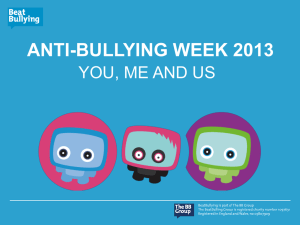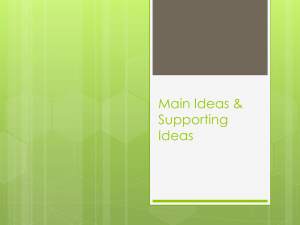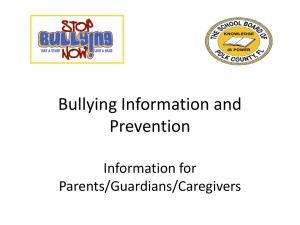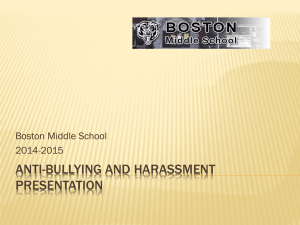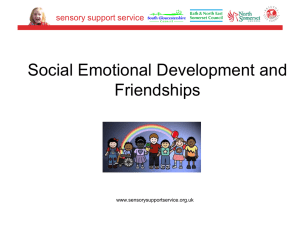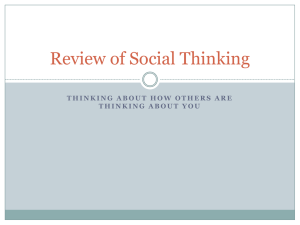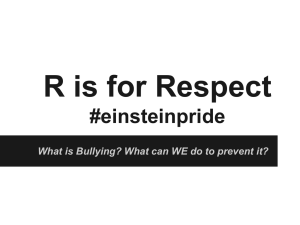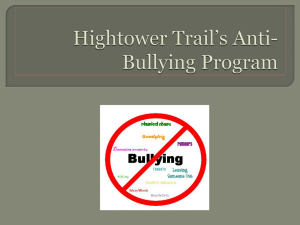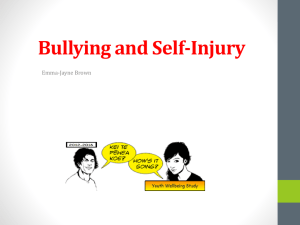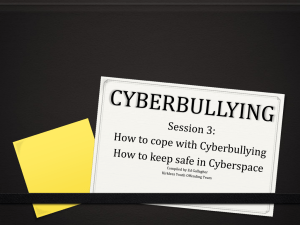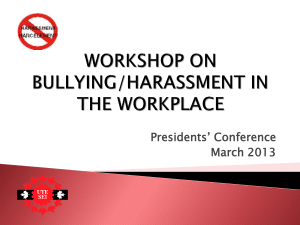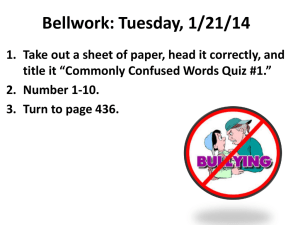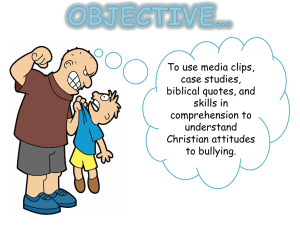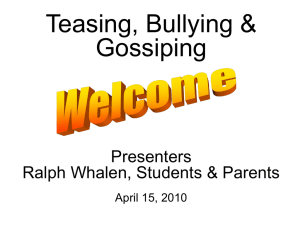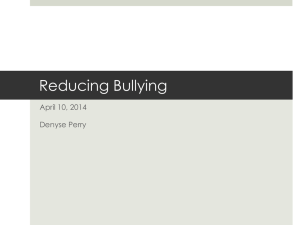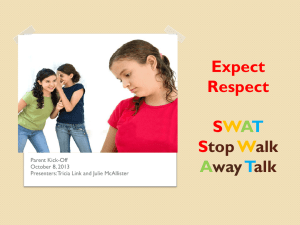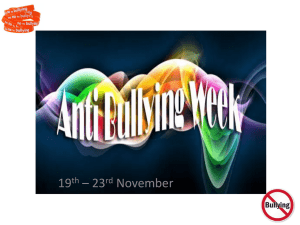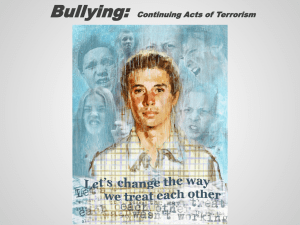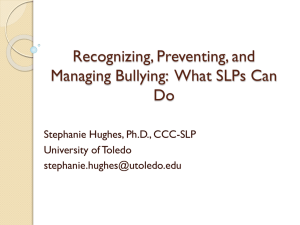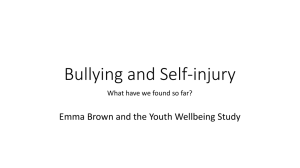File - Kids Creative
advertisement
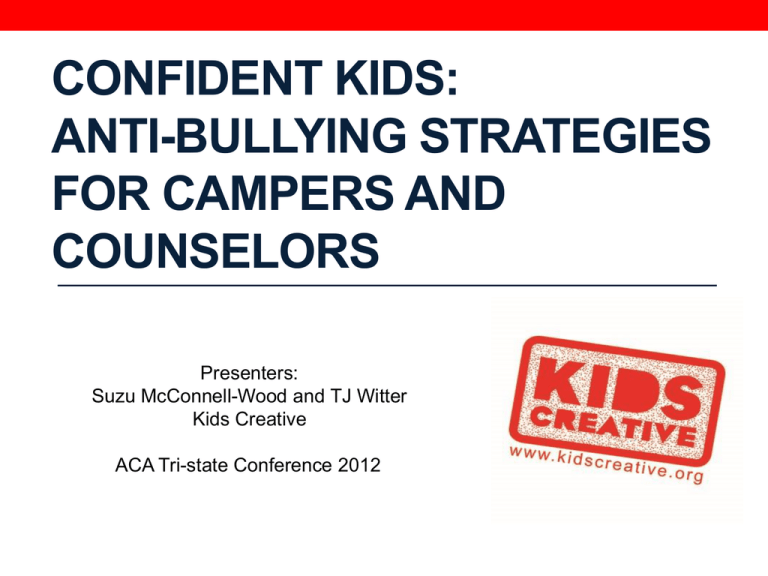
CONFIDENT KIDS: ANTI-BULLYING STRATEGIES FOR CAMPERS AND COUNSELORS Presenters: Suzu McConnell-Wood and TJ Witter Kids Creative ACA Tri-state Conference 2012 Objectives • Learn techniques to build confidence and help avoid bullying. • Encourage empathy through camper- counselor interactions and arts activities. • Learn to empower campers as active participants in a bully free camp culture. Agenda 1. INTRO 2. ICE BREAKER 3. GROUP AGREEMENT 4. DEFINITION OF BULLYING 5. SCENARIO SHARING & SMALL GROUP ROLE- PLAY 6. WHOLE GROUP “ONE VOICE” ROLE-PLAY 7. GENERATE TOOLS AND STRATEGIES Intro Kids Creative is a nonprofit organization that offers arts-based, peace education programs for Pre-K to High School age students through after school programs, summer camps and workshops. Our Vision A better, more peaceful future can be brought about by those who, through the arts, have developed the creative, critical thinking and social skills necessary to make peace within themselves and in society. Our 6 C’s of Peacemaking: Confidence Creativity Conflict Resolution Community Collaboration Cookies (i.e., fun) About us: Suzu McConnell-Wood, Program Director Tejon “TJ” Witter, After School Site Director/Summer Camp Teacher Ice Breaker People to People Group Agreement What do we expect for ourselves and what do we expect from others? Kids Creative Rules: • All ideas are Good • “Yes and…” • Be nice Definition of Bullying Graffiti Board and Bearing Witness • What does bullying look like? • What does bullying feel like? • What are the effects of bullying on the individual campers? • What is the effect of bullying on camp as the whole? • What is the role of staff in bullying? Small Group Role Play 1. Individuals write a short scenario of bullying at camp 2. 3. 4. 5. that they witnessed, intervened in etc. In small groups share the scenarios Select one scenario and ask clarifying questions Role-play: The person who shared the scenario plays the child in the scenario, the other members all represent the “one voice” of a bystander, parent or counselor. Debrief: What was achieved? What tools and strategies were used? Whole Group Role Play 1. One participant shares their scenario 2. 3 volunteers ask clarifying questions 3. Role-play: The 3 volunteers play “one voice” of 4. 5. 6. 7. another person in the story Actors reflect Whole Group Debrief Group conversation about what happened Round two Generate Tools and Strategies • Discuss proactive and reactive responses • Proactive responses: Establishing a community where bullying does not need to take place • Reactive responses: Taking action when acts of bullying do take place • Review and reflect • What proactive and reactive responses currently exist in your camp? • What new strategies can you develop and implement to improve your camp’s anti-bullying policies and procedures? • What components can you include in staff training to increase confidence and reduce incidents of bullying? Sample Tools and Strategies Sample Kids Creative Tools and Strategies • Rules for Play • If someone is sitting out, you have to go ask if they want to play; It’s OK for them to say no, thanks. • If someone wants to play a game, you have to let them, as long as they play by the rules of the game you’re playing • Common creative goal • A story with conflict • Peace and Culture curriculum and staff member • Peace Games and Kids Creative activities Thank you We want to hear from you. Please fill out a survey! “Confident Kids”, Suzu Mconnell-Wood and Tejon “TJ” Witter Questions, thoughts, ideas? Contact us: info@kidscreative.org or (646) 485-5123 www.kidscreative.org www.twitter.com/kidscreative

